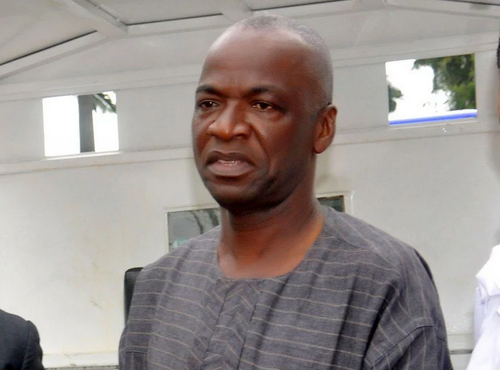Senate President, Dr. Abubakar Bukola Saraki, has decried the outbreak of lead poisoning in Rafin Local Government area of Niger State due to small scale or artisanal mining of gold in the area.
Saraki who stated this when the representatives of Doctors Without Borders led by Dr. Simba Tirima paid him a courtesy call, said it was unfortunate that the incident in Niger State occurred at a time the nation is yet to recover from the ravages of a similar incident in Bagega, Zamfara State where over 400 children were affected in 2013.
He lamented that 28 children had already died as a result of the lead poisoning in Rafin Local Government of Niger State and called on the Ministry of Solid Minerals to be proactive in tackling the incidence so as to safeguard the health of the people living in the area especially, children.
He said the Senate would work with the various stakeholders to ensure that all funds made available are utilized for proper remediation of the affected communities and the treatment of children already affected by lead poisoning.
Saraki said: “I want to assure you that this National Assembly will make this issue a matter of great urgency to ensure that all that was made available for the remediation that needs to be done either through the funds of the ecological agency or through the 2016 budget, is done not only to address the case in Niger State but also we must be proactive and there must be a level of funding available for this.
“This cannot happen in any developed society today. We need to begin to also identify areas in this country where gold mining is resulting to lead poisoning. Like he (Tirima) said, we cannot stop the miners because as a result of poverty, this is their only source of income to survive.
“It is our duty to improve and make mining safer. I think it is important also that the Ministry of Solid Minerals takes quick and proactive actions in addressing the issue of lead poisoning.
“The state government has a role to play as well. We must get the government of Niger State and Rafin Local Government involved. They should play their own role in educating the stakeholders there to understand why they must stop their mining activities.
“Really, we must ensure that this does not repeat itself in this country. It is very unfair to the citizens, most especially the children that are affected. We will take it up from here to ensure that prompt action is taken, so we can quickly address the issue and treat those that were affected,” he said.
Earlier, the representative of the Doctors Without Borders, Dr. Simba Tirima, commended the Senate President for his efforts towards curtailing the lead poisoning incidence in Bagega, Zamfara State in 2013 when he was the Chairman, Senate Committee on Environment and Ecology in the 7th Senate.
Tirima said: “Without His Excellency really, the funds that were allocated for that project would not have been released. But he personally went to Bagega to visit the people that were affected. I am very happy to report that Bagega is doing very well.
The kids who are on treatment are being discharged because there has been a lot of improvement and the treatment is going on very well through Doctors Without Borders.
The kids who are on treatment are being discharged because there has been a lot of improvement and the treatment is going on very well through Doctors Without Borders.
“We want to thank you for your support in dealing with such a serious issue of lead poisoning which primarily attacks the very thing that makes us human and that is its impact on our brains especially poor children who are the future of this country. We thank you for your continued support,” he said.
